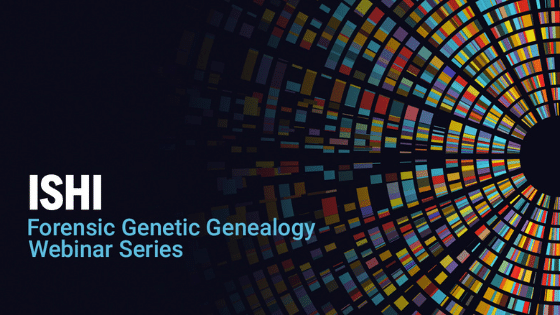For over four decades, the Golden State Killer eluded capture–until 2018, when a revolutionary tool known as forensic genetic genealogy (FGG) unmasked him as 72-year-old Joseph James DeAngelo. Using genome-wide testing to generate a comprehensive DNA profile, FGG helps narrow down a pool of suspects by linking them to relatives who have submitted their own DNA samples for genetic genealogical analysis. Since 2018, FGG has been deployed for lead generation in over 200 suspect cases around the world. This free three-part webinar equips genetic forensics professionals with information about what cases are best suited for FGG, what labs and prosecutors will face when they take these cases to court, and which technologies are best for generating a genetic profile for FGG analysis.
Part 1: An Inside Look at the Facts and Fiction Surrounding Genetic Genealogy
Wed, April 13, 2022 @ 10am CDT/11am EDT/4pm GMT
In Part 1 of this series, Steve Busch, a veteran FBI Special Agent, and Steve Kramer, the FBI’s in-house counsel of 20 years, bring years of experience in FGG. As co-founders of the Bureau’s FGG team, they can offer a unique perspective on this exciting new method of lead generation. Kramer assembled and led the team that solved the Golden State Killer case, and Busch was a key architect of the FBI’s national FGG program. Now representing Indago Solutions, Kramer and Busch cover the fundamentals of FGG and its rise as a leading method of investigation.
In this webinar, you will learn about:
- The origins of FGG
- Best practices of law enforcement
- Probable cause and legal considerations
- Common myths surrounding FGG
Part 2: Closing the Genealogy Gap: From Extraction to Prosecution
Wed, May 4, 2022 @ 10am CDT/11am EDT/4pm GMT
In Part 2 of this series, Rachel Oefelein, Director of Research and Innovation, Quality Assurance Manager, and a Senior DNA Analyst, DNA Labs International, will present a step-by-step guide from DNA extraction through prosecution of Forensic Genetic Genealogy (FGG) cases. Ms. Oefelin will address how to generate a profile suitable for genealogy upload, the bridge between generating genealogy data and genealogy research, confirming investigative leads with STR comparison, and expert witness testimony as it pertains to cases that utilized FGG.
In this session, you will learn about:
- The types of cases and samples eligible for FGG
- How DNA analysts and genealogists can work together
- Necessary steps to confirm an identification
Part 3: Decoding the Laboratory Options for Genetic Genealogy
Wed, May 27, 2022 @ 10am CDT/11am EDT/4pm GMT
In this session of this series, Danny Hellwig, Laboratory Director at Intermountain Forensics, will present on the methodologies to know in this paradigm-shifting development in forensic DNA. FGG can be a tremendously effective method for tracking down leads, but they can demand a mastery of the instrumentation, processes, and profiles used in generating genetic genealogy results. For forensic DNA experts, these technologies can be unfamiliar. A DNA analyst, technical leader, and operational leadership expert, Hellwig contextualizes the forensic DNA community’s knowledge of targeted SNP assays, microchip-based DNA testing, and the multitude of whole genetic sequencing options available.
In this session, you will learn about:
- Pros and cons of various laboratory instrumentation, processes, and profiles
- A big-picture view of FGG bridging the forensic DNA and genealogy research communities
- Targeted SNP assays, the use of microarrays, and other genome sequencing options
- Cross-professional technologies and methodologies
REGISTER TO ATTEND THE WEBINAR SERIES


